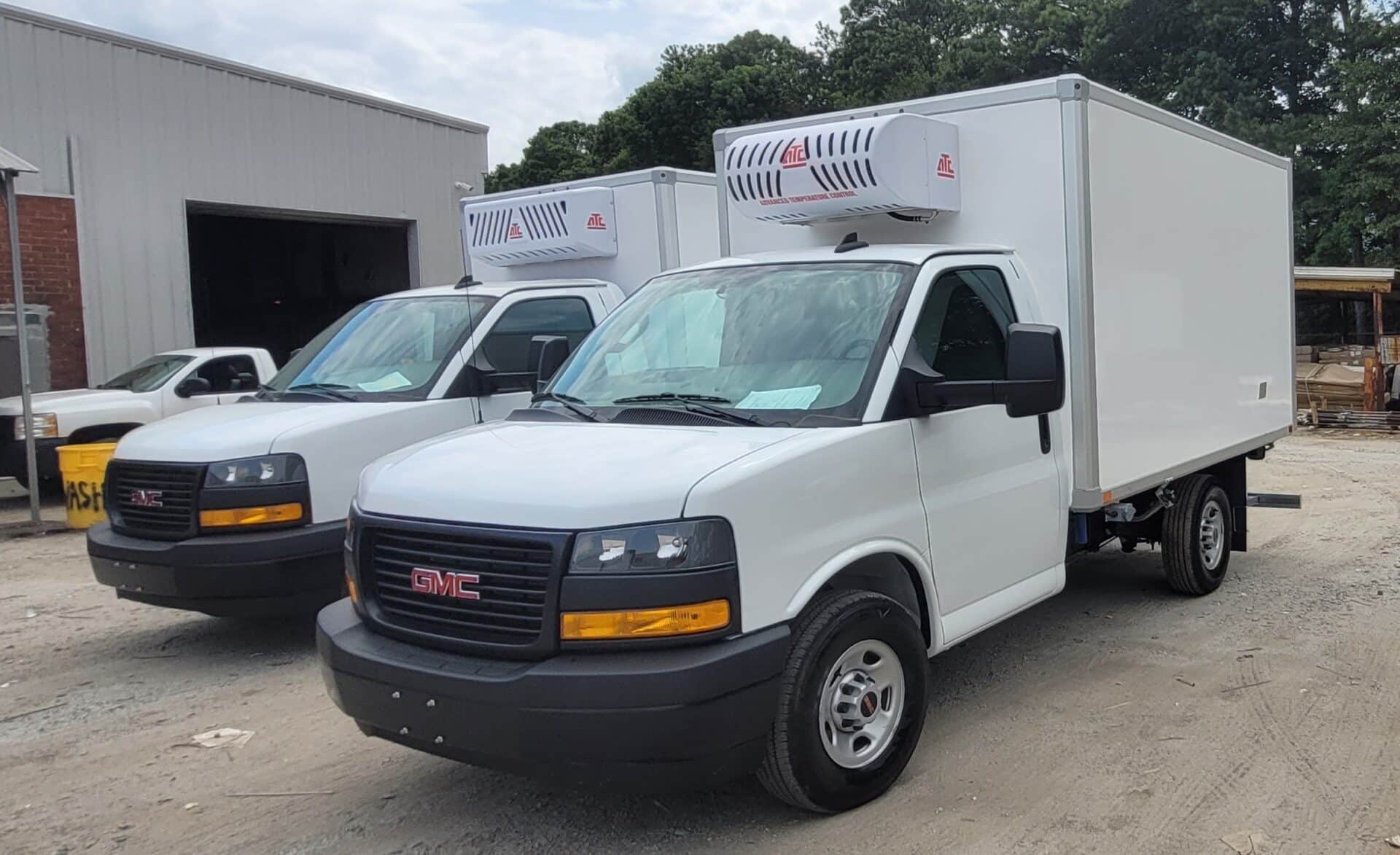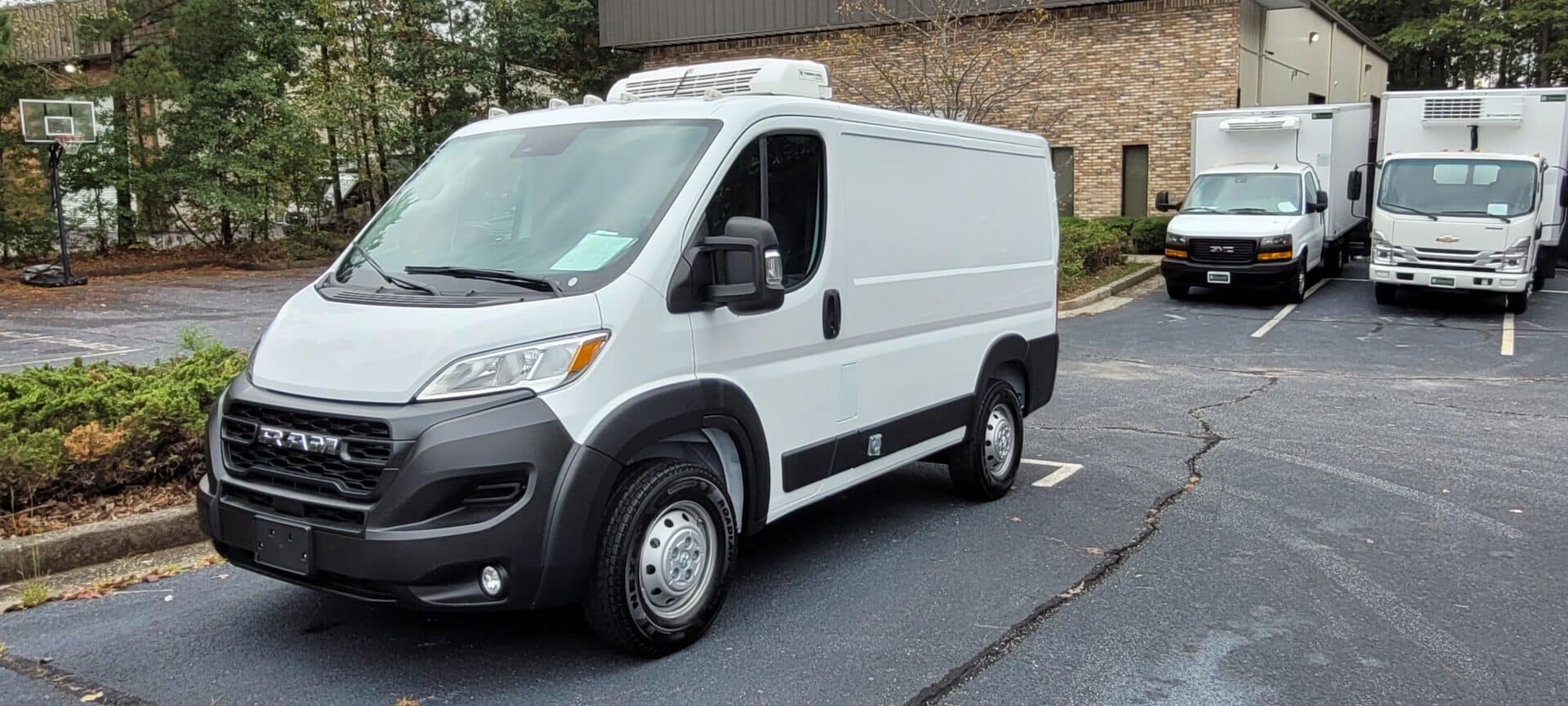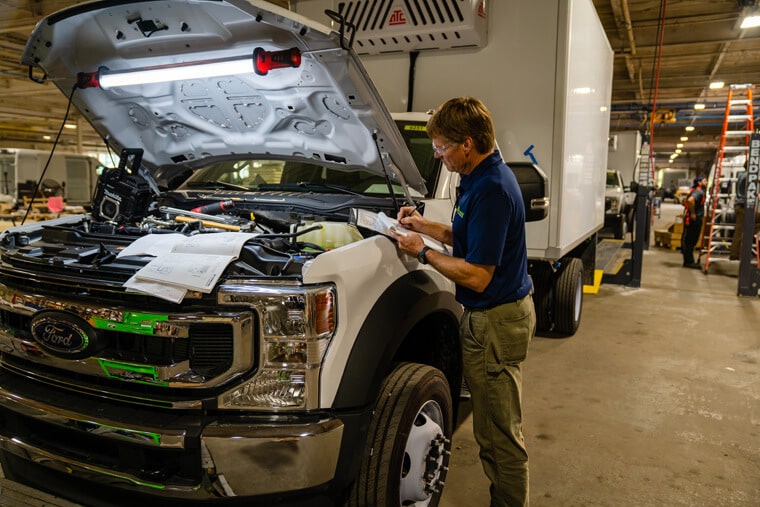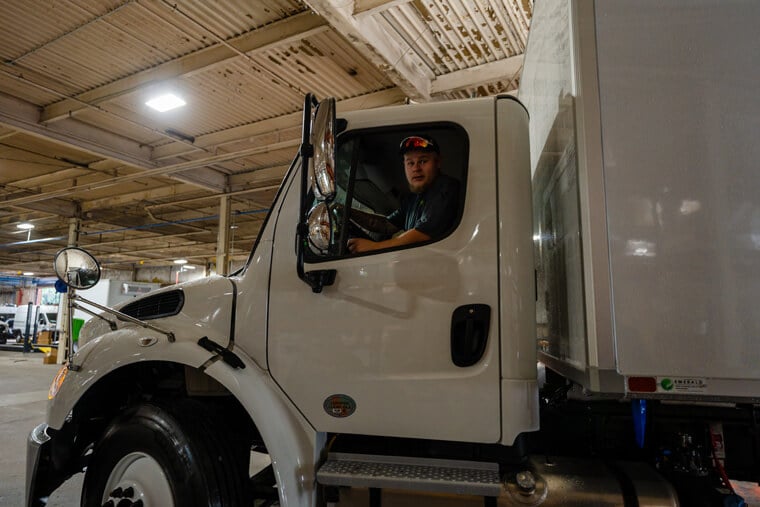
Seafood Transport: Reducing Economic and Environmental Impact with Refrigerated Trucks
emerald-admin | April 19th, 2024
Refrigerated road transportation stands as a critical component in the cold chain, ensuring the safe and efficient delivery of high-quality seafood to consumers. At Emerald Transportation Solutions, we offer a diverse selection of refrigerated (reefer) trucks and vans designed to optimize seafood transport while enhancing economic efficiency and reducing air pollution and its negative health effects.
Maintaining Quality and Preventing Waste
Refrigeration technology enables the transport of seafood over long distances in a controlled environment, preserving its quality and minimizing spoilage. The maintenance of proper temperature throughout the transportation process is crucial, as poor handling before transport, improper storage, and inadequate cooling can lead to significant food loss and waste. With a refrigerated van or small freezer truck for sale from our inventory, you will have the ability to transport seafood under the required conditions that preserve its quality.
Optimizing Refrigeration Methods
Various refrigeration methods, including mechanical refrigeration and rechargeable eutectic plates, are employed to maintain precise temperature levels during transport. Whether chilling products close to 32 °F or freezing them at 0 °F, the efficiency of refrigeration systems is influenced by factors such as insulation quality, initial product temperature, and local climate conditions.
Addressing Energy Consumption
Energy consumption is a primary concern in refrigerated transport. Companies are investing in energy-efficient technologies and processes to increase efficiency and reduce operational costs. This includes usinghigher-efficiency refrigeration systems, state-of-the-art insulation materials, and route planning optimization to keep fuel consumption to a minimum.
Adopting Alternative Fuels
The transition of reefer transportation companies towards electric or hybrid vehicles presents a notably cleaner alternative than conventional diesel trucks. Electric refrigerated trucks, in particular, eliminate tailpipe emissions, thereby significantly better air quality. Using electric and hybrid vehicles also reduces the potential for water pollution from diesel and other fuel emissions and spills that reach waterways, negatively impacting aquatic life. Acid rain is one potential from diesel emissions, affecting the food chain. The ongoing development of charging infrastructure with the addition of government incentives is accelerating the shift towards alternative fuels.
Advancements in Technology
Advanced monitoring systems and telematics serve as highly effective tools for fine-tuning energy consumption, monitoring temperature changes, and guaranteeing streamlined operations. With real-time monitoring capabilities, companies promptly address potential issues with proactive maintenance, effectively reducing product spoilage and minimizing energy waste. Leveraging data-driven insights, businesses can pinpoint areas for enhancement, ultimately bolstering economic and operational efficiency.
At Emerald Transportation Solutions, we are dedicated to providing efficient refrigerated transport solutions for the seafood industry. Give us a call today at 678.831.9975 or complete our contact form to shop our extensive inventory of refrigerated delivery trucks and vans.
Related Articles
Contact Us
Feel Free To Contact Us If You Have Any Questions
What does under DOT mean?
Questions regarding DOT requirements come up often. 10,000 lbs GVW (gross vehicle weight) and over are commercial vehicles that fall under the Department of Transportation regulatory requirements.
What is the difference between GVW and payload?
GVW or Gross Vehicle Weight is the entire weight of the vehicle including the payload. The payload weight represents the amount of cargo you are hauling.
What is a self-powered unit and a vehicle-powered unit?
A self-powered unit has its own fuel source and will run independent of the truck. This is the heaviest and most expensive option. While vehicle-powered units run off the engine via a compressor mounted on the engine. These are less expensive and lighter in weight but you must run the truck or plug the electric standby into shore power.
What does K-factor mean and why is that important?
K-factor is a term that stands for the overall insulating value of the container (truck body). Quite simply the lower the K-factor the better the truck body will be able to maintain a given temperature and require less energy to do so.
How much lighter is a Poly Van vs a US spec body?
Poly Van bodies are very light. On average we estimate we are 75-150 lbs per foot lighter than a traditional sheet and post foamed in place body. These weight savings translates to less fuel burn and less CO2 emissions, along with added payload, the most important benefit.






